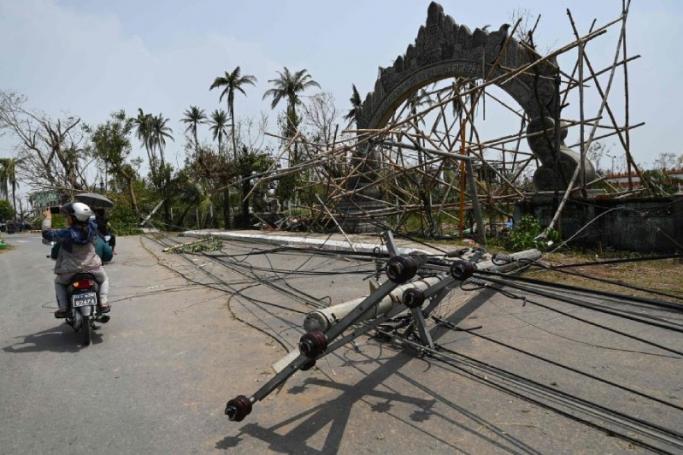The six-month anniversary of the destruction of Cyclone Mocha went past last week with hardly a murmur, with international and local humanitarian organizations aware they have had little success in helping the victims – particularly those in the IDP camps in Rakhine State, the worst-hit region.
The cyclone came ashore in Rakhine State on 14 May this year, and caused damage across a swathe of Myanmar.
Cyclone Mocha’s negative effects were reportedly compounded by flooding during the monsoon season and by the recent less-damaging Cyclone Mamoon, adding to the difficulties of those negatively affected.
The humanitarian response to Cyclone Mocha can rightly be classed as a disaster, largely due to the Myanmar junta’s red tape and their efforts to use aid as a weapon, allowing what aid was allowed to go through to go to those who are “pro-junta” or in areas under their control.
The junta’s claims it helped Cyclone Mocha victims have been shown for what they are – public relations spin to cover up for a policy that aims to use humanitarian aid to further the regime’s agenda.
To a certain extent, there is a touch of déjà vu in how the generals in Naypyidaw handled the Cyclone Mocha fallout. While the cyclone was nowhere near as devastating or deadly as the 2008 Cyclone Nargis, there were echoes of military junta xenophobia and interference in the humanitarian aid response.
In the wake of this year’s Cyclone Mocha, many victims were left to fend for themselves, or received very limited help. A significant number of IDPs in Rakhine are reported to have received little or no humanitarian aid, and many had to use makeshift efforts to rebuild their shelters.
Despite the visits to Myanmar of a number of UN representatives, including Martin Griffiths, the UN Under-Secretary-General for Humanitarian Affairs, only a limited amount of international aid got through the cyclone victims. Compounding the problem, the UN reports that their “Myanmar fund” is seriously underfunded, which suggests a number of governments are wary of funneling money into a humanitarian drive that would be overseen by a brutal military junta.
There is an alternative. Critics say the UN should do more to engage with alternative channels, including Myanmar’s National Unity Government (NUG) and local NGOs, who have some control over delivery channels to those in need in the country.
Six months on, Myanmar’s humanitarian challenge is less about the fallout from Cyclone Mocha and more about the general dire humanitarian situation across Myanmar as the military continues its “war on the people”.
Clearly, the UN and other humanitarian organizations need to do far more to funnel in aid through backdoor channels to those in need.












